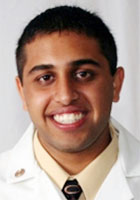We are now nearly a month into the new semester and well into the second month of this new year. I hope that new routines or new resolutions are settling into comfortable habits for you.

In my previous post, I promised to discuss interesting advances in research, and I am pleased to highlight a groundbreaking discovery from faculty and trainees in our Department. Researchers in Dr. Michael Welsh’s lab have uncovered a solution to a 25-year-old mystery and may have opened the door to a new treatment for cystic fibrosis (CF). We could not understand why mice harboring the CF mutation did not develop lung disease.

But now, a student in our innovative Medical Scientist Training Program, Dr. Viral Shah and colleagues, have discovered that a gene that encodes an acid pump was not active in mice but present in humans. Absence of this pump prevented airway secretions from becoming acidic, which prevented lung infections in the CF mouse. By adding back this gene to mice, Shah and his colleagues were at last able to reproduce disease in the CF mouse. Therefore inhibition of this pump may represent a new therapeutic target to treat this otherwise devastating disease. This discovery published in Science, underscores the quality of our MSTP students and the strong mentorship and environment for creative thinking that mentors like Dr. Welsh provide. Congratulations on this achievement.

Genetic testing is becoming more commonplace and the data that results from this testing is beginning to offer researchers a wealth of information for study. However, ensuring patients fully understand the ways this information will and will not be used is also exceedingly important. I am encouraged by the results that Dr. Christian Simon reported in a paper published last year in Genetics in Medicine as part of his ongoing research. Dr. Simon examined differing types of interactive multimedia deployed to inform potentially consenting patients about adding their information to biobanks. He then compared those types to differing types of traditional face-to-face methods. His research found that by adding a few simple questions throughout an interview, whether digitally or in conversation, the patient’s understanding of consent ramifications increased. Although this may increase the amount of time involved in obtaining consent, increasing the patient’s insight will translate to better engagement with their care.
Both of these examples showcase the wide array of innovative research happening in our Department. I am committed to strengthening our research mission, recognizing that all discoveries take time and deliberation, but also a willingness to go down roads previously unexplored. In the next few weeks, I will share with you new strategies and initiatives that will further strengthen the research mission of the Department.
Finally, many of you are already aware, but I would like to add my own congratulations to Dr. Patricia Winokur on her new role as Executive Dean of the College of Medicine. I look forward to working with Pat in the coming months as our Department continues to chart its path forward.